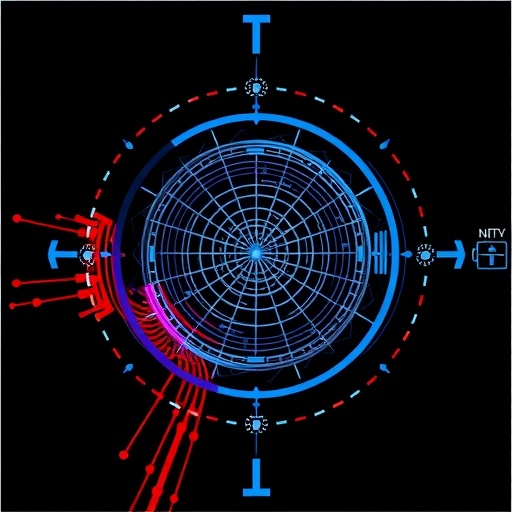In recent years, cervical cancer has emerged as a leading cause of mortality among women worldwide, surpassing even maternal mortality in its devastating impact. Despite the availability of effective screening techniques, global coverage remains deeply inadequate—only around one-third of women have undergone cervical cancer screening. This glaring gap in prevention and early detection has spurred scientific communities to explore innovative solutions that can transcend infrastructural and resource limitations faced in many parts of the world, especially in rural and low-income regions.
A groundbreaking study conducted collaboratively by Uppsala University, Karolinska Institutet, and the University of Helsinki explores the potential of artificial intelligence (AI) to revolutionize cervical cancer diagnosis within resource-constrained healthcare environments. This research evaluates how AI-supported diagnostic methods can be integrated into rural hospitals in Kenya and Tanzania, substantially improving early detection rates and, consequently, saving lives. By harnessing the power of digital tools, this approach aims to address critical shortages of trained pathologists and laboratory infrastructure, barriers that traditionally limit access to quality cervical cancer screening.
The study focused on a cohort of 3,000 women who had no previous access to cervical cancer screening. In remote medical facilities, specimens of cervical cells and samples for human papillomavirus (HPV) testing were collected and digitized on site. These digital images were then analyzed using advanced machine learning algorithms, capable of identifying abnormal cellular morphology indicative of precancerous or cancerous changes. Simultaneously, local pathologists performed traditional manual examination of slides, enabling a thorough comparative analysis of AI versus human diagnostics in these settings.
Training local healthcare professionals formed a critical dimension of the study. Nurses, laboratory personnel, and pathologists were equipped with the necessary skills to operate the AI system. This included expertise in sample preparation, digital image acquisition, and interpretation of AI-generated results. The collaborative effort extended to integrating the AI-driven diagnostic workflow with existing healthcare routines and national treatment guidelines, ensuring that women identified with pathological changes received timely and appropriate care in line with country-specific protocols.
Despite the promising technological innovation, the researchers encountered several operational challenges. A major technical obstacle was the inconsistency in sample staining, a step essential for visualizing cellular structures under a microscope. Variability in the types and quality of staining reagents, influenced by supply chain disruptions and differing local standards, resulted in heterogeneity in cellular coloration and image quality, which in turn affected the AI’s diagnostic accuracy. Moreover, intermittent power outages and reagent shortages further hampered frequent and reliable testing, indicating that infrastructural investments remain indispensable to optimize AI implementation.
Compounding these technical difficulties were the logistical challenges of patient follow-up and continuity of care. In Tanzania, for example, a subset of women who tested positive for potentially malignant changes failed to return for further diagnostics or treatment. Tracking and re-engaging these patients proved difficult for local healthcare workers, highlighting systemic hurdles in patient education, healthcare accessibility, and communication infrastructure. These findings underscore that technological advancements must be accompanied by robust community engagement and healthcare system strengthening to realize meaningful health outcomes.
Importantly, this pioneering AI-supported screening method demonstrated substantial potential to democratize cervical cancer diagnostics. It offers a scalable model that can function with limited expert involvement, accelerating the diagnostic process and expanding coverage to underserved populations. This innovation, however, is not merely a technological intervention; it also presents an opportunity to build trust within communities towards formal healthcare services. When women observe the tangible benefits of accessible and reliable care, it fosters confidence in the healthcare system and promotes proactive health-seeking behavior.
The research highlights a paradigm shift in global women’s health diagnostics, illustrating how artificial intelligence can reconfigure long-standing dependencies on scarce expert personnel. The AI method enables parallel processing of numerous samples, ensuring that no woman is left behind due to the bottlenecks in specialist availability. This digital transformation can help close the vast equity gap in cancer prevention services between wealthier urban centers and rural or resource-limited areas.
Furthermore, the study exemplifies the necessity of holistic implementation strategies that consider the entire diagnostic ecosystem. Investments in medical personnel training, infrastructure improvements, and reliable supply chains constitute integral components without which AI technologies cannot realize their full potential. The combination of human expertise, community participation, and cutting-edge algorithms forms a resilient framework for enhancing women’s health outcomes globally.
From a broader scientific perspective, this investigation catalyzes further exploration into AI applications in other domains of women’s health and disease management. The successful groundwork established by integrating AI into cervical screening programs lays a foundation for extending similar diagnostic support to breast cancer, reproductive health issues, and infectious disease surveillance. These efforts align seamlessly with global health priorities aimed at achieving universal health coverage through innovative technologies.
In conclusion, while the deployment of AI-driven diagnostic methods in low-resource settings confronts multifaceted challenges—including variable sample quality, infrastructural constraints, and patient follow-up barriers—its transformative potential remains undeniable. This study serves as a clarion call for policymakers, healthcare leaders, and the global scientific community to invest decisively in technology-enabled, community-focused healthcare innovations. Through such concerted action, preventable cancers like cervical cancer can be detected earlier, treated more effectively, and ultimately reduced in incidence, heralding a new era of equitable global women’s health.
Subject of Research: People
Article Title: AI-supported diagnostic innovations for impact in global women’s health.
News Publication Date: 10-Oct-2025
Web References: 10.1136/bmj-2025-086009
Image Credits: Nina Linder
Keywords: cervical cancer, artificial intelligence, AI diagnostics, global women’s health, HPV screening, low-resource healthcare, digital pathology, rural healthcare, healthcare innovation, medical AI, diagnostics accessibility
Tags: AI cervical cancer screening in KenyaAI in resource-constrained environmentscervical cancer mortality reduction strategiesdigital health tools for cancer diagnosisearly detection of cervical cancerHPV testing in low-income regionsimproving women’s access to cancer screeninginnovative cancer screening technologiesovercoming healthcare infrastructure challengesrural healthcare AI solutionsTanzania cervical cancer diagnosiswomen’s health and cervical cancer





